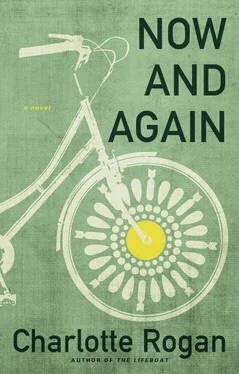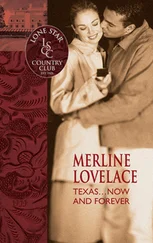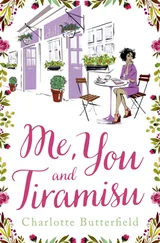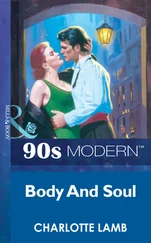Once, back when he himself had been a captain, he’d led a tank company in the wrong direction. Visibility had been next to impossible due to hundreds of burning oil fields. He’d had to make a split-second decision, and he had called it wrong. The lessons learned were many: to listen to his subordinates, to take a moment even when all hell was breaking loose, to realize that mistakes came with the territory in any pressured situation. Most important of all, he had learned that the reaction of a superior could foster learning and renew confidence, which is exactly what his commanding officer had done when he had called Falwell into his office and said, “You’ll get ’em next time.” That was what had been done for him and what he had tried to do in saving Sinclair from the consequences of his overly emotional report.
The very next day, Falwell’s tank company had led the charge into occupied territory, and he had earned a Bronze Star for decisive leadership and superlative courage in the face of enemy fire. “Superlative” was a good word, one he liked to use whenever he could.
10.4 Penn Sinclair
What the fuck? asked the expression on Falwell’s face when he opened the door of his Arlington hotel room. Falwell was up for full-bird colonel, and he was quick to make sure Penn knew it. “What the fuck?” he asked when the formalities were over and they were sitting down.
“I’m sorry, sir, but I’m not sure what you mean,” said Penn, who had decided to listen and say as little as possible until he found out why he was there.
“You told me you deleted your statement.”
“What statement?”
“Now someone has posted it on a website right next to my official AAR, and I’m guessing it was you.”
“What if it was?” asked Penn, worried that the colonel knew more about the website than he was letting on.
“What the fuck for?”
“I’m just telling the truth,” said Penn, grateful now for the fist that gripped his insides because it kept him from letting his guard down. And grateful for the guilt that was his constant companion because it kept him from backing off his commitment to his men. “I’m hoping it will even save some lives.”
“Truth,” said the colonel. “How exactly will your version of the truth save lives?”
“Only by acknowledging a mistake can we learn from it,” said Penn.
“Who said that?” asked Falwell.
“You did, sir. You said I could quote you.”
Falwell picked up a sheaf of papers and put them down again. “Do you see this report?” he asked. “Sectarian violence is down; local law enforcement is up; a constitutional review committee has been formed. Ten of eighteen benchmarks met or exceeded.”
Penn looked out the window to where a glossy bird sat on a railing and pecked at the glass.
“Damn bird is trying to get in,” said the colonel.
“Why in God’s name would it want to get in?” asked Penn. “We can’t even understand ourselves, so how can we expect to understand birds?”
“I think we can understand birds,” said Falwell. “At least a little bit. Otherwise why would we care about them? Why would we create bird sanctuaries and set out birdseed in the winter? Why would we give a crap about the spotted owl?”
“We’re so good at understanding that we barge right on in without realizing that we don’t have a clue what we’re hoping to accomplish. Nobody had a handle on the big picture, but they were too stubborn to admit it.”
“But that’s changing. That’s what the surge was all about.”
“Oh, now we understand. We didn’t then, but now we do. There’s nothing different about this time. That’s the real lesson learned.”
“Who really knows anything?” asked the colonel. “You do your best with what you have.”
“And our best wasn’t anywhere near good enough. The war has harmed countless soldiers and families, and it’s made the world more dangerous.”
“The world has always been dangerous,” said the colonel. “We in America have an illusion of safety, but it’s only an illusion. The war might have opened a few eyes — it might have opened your eyes — but it didn’t change anything fundamental about the world. You want to see a dangerous world, just dismantle the American army and bring all of our soldiers home.”
Penn remembered what he had learned from the man in the library, and he couldn’t disagree. “Man is warlike,” he said, but the heat had gone out of his anger. All he felt now was tired.
“What would our place in a peaceful world be, Sinclair? Do you think a peaceful world would be one where everyone agreed and justice magically prevailed? No, it would just be one where people didn’t give a shit. No one standing up for anything. Everybody neutered and complacent.” He laughed without smiling. “In a peaceful world, my daughters would be in charge of things, and much as I love my daughters, that isn’t something I’d like to see.”
Penn thought about what the world would be like if Louise and her friends were calling the shots. Everything would be attractive and well planned, with peonies and parsley garnishes and sparkling beverages served in champagne flutes.
“Everything becalmed and stagnant — is that the kind of world you want?”
“No sir.”
“If there’s nothing worth fighting for, there’s nothing worth living for either.”
“Yes sir,” said Penn.
“Far better it is to dare mighty things, to win glorious triumphs, even though checkered by failure than to rank with those poor spirits who neither enjoy much nor suffer much, because they live in the gray twilight that knows not victory nor defeat.”
“Theodore Roosevelt,” said Penn.
“My point is that you take your best shot. That’s all any person can do.”
It was something Penn had said himself, most recently to Danny. He had not only said it, he had believed it. Now a tiny particle of hope started expanding in his breast. Maybe people could know, or if they couldn’t, maybe partial knowledge was good enough.
“What do you want to do with your life, Sinclair? What are your plans?”
It was the question Penn had been asking himself. “I want to see my men back on their feet. I think that’s happening — at least I’m hopeful. And after that, I haven’t decided.”
“I called you down here for two reasons,” said Falwell.
“Sir?” The bird was back. Penn wondered if it had choices or only instinct and if he was more, or less, like the bird.
“One was to ask you if you are the one who posted the two versions of the IED incident on the Internet. And if you did, to ask you to take them down.” Falwell drummed his fingers on a pile of papers, and when Penn didn’t reply, he said, “And the other is to ask if you are interested in this.” He took a sheaf of papers from the pile and passed it to Penn. The top page showed a group of soldiers standing at a safe distance while a robot dismantled an IED. “When I saw it, I thought of you.”
Penn had wondered if the colonel knew who was behind the website, but as he paged through the document, he concluded he didn’t. The knot in his chest dissolved as he listened to a rambling story about burning oil fields and a botched tank attack, where the moral seemed to be about second chances and where the punch line seemed to be “the smog of war.”
“I see something in you,” said the colonel. “And what I see is me.”
“Yes sir,” said Penn.
The bird was back, fooled by the expanse of glass and probably by the reflections in it of the view from the hotel window: the blue sky and the puffy clouds and a chevron of geese silhouetted against a disc-like sun. Penn decided it wanted in after all, but only because it thought that in was out.
Читать дальше












